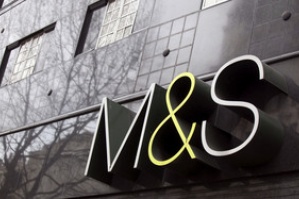Irish divisions of big UK retailers become sweet spots
sterling and the expected prolonged weakness of the currency means the existing Irish divisions of the big UK retailers could become sweet spots for their British parent companies.The plunge in sterling and the expected prolonged weakness of the currency means the existing Irish divisions of the big UK retailers could become sweet spots for their British parent companies.plunge in sterling and the expected prolonged weakness of the currency means the existing Irish divisions of the big UK retailers could become sweet spots for their British parent companies.The plunge in sterling and the expected prolonged weakness of the currency means the existing Irish divisions of the big UK retailers could become sweet spots for their British parent companies.
If Ireland already appeared an attractive location for UK retailing tycoons such as Mike Ashley before the Brexit vote, the State is going to look like a tray of fresh pints at closing time now. Huzzah!
With sterling down, profits and cashflow generated in euro in Ireland have, overnight, become more important to the big UK retailers. British imports into this State have effectively become cheaper, so, until they cut their prices at Irish tills, the UK retailers in Ireland can make hay on the exchange rate difference.
As Conall Mac Coille, chief economist at Davy stockbrokers, put it: “UK retailers will initially leave their euro denominated prices unchanged, taking their competitive gain from the weaker exchange rate in the form of higher profit margins.”
This, he confirmed, makes “the Irish arms of their operations more valuable” to their group.
Almost all of the big British retailers have significant operations here. Tesco is the largest private sector employer in the State, with more than 14,000 employees and 150 stores. Argos, M&S, B&Q, Homebase, Next, Poundland/Dealz, PC World… they’re all prominent here.
Maximising profits
It is difficult to predict what effect the currency issue might have on the behaviour of such British retailers in Ireland.
Might some of them be tempted to squeeze their local euro cost bases even further, maximising the euro profits to be fed back to their UK motherships, where they could be converted into ever bigger piles of sterling?
If so, it could herald bad news for some Irish employees of UK retailers. Debenhams, for example, prior to Brexit was already putting its Irish operation through the car wash of examinership, citing a need to reduce rent and staff costs.
Tesco has also been no slouch in recent times when it comes to trimming its Irish costs. Just ask its 1,000 longest-serving staff members, who were either shepherded towards redundancy or presented with inferior contracts earlier this year. Another, more optimistic scenario is that the British retailers might invest further in their Irish operations in an attempt to boost revenues and profits.
This would make most sense if the local operations were able to fund further investment themselves, without the UK-based parent groups having to stump up by converting sterling into euro.
From : Irish Times




